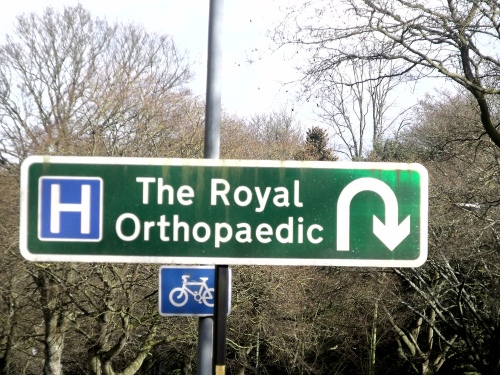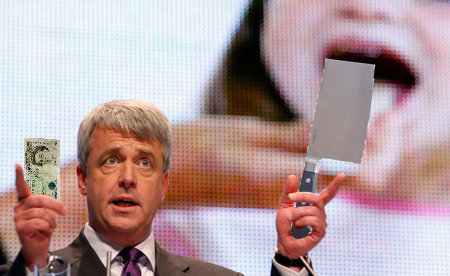Photograph by ell brown on Flickr. Creative Commons licence
If you, like me, have something incurable but treatable that, without treatment, would leave you unable to work, the NHS in England is grudgingly willing to let you have your prescriptions for free.
They don’t make it easy for you to find this out. You need to either wade through dozens of forms and leaflets offering you ways of paying in advance or in instalments, or, as happened to me, pay for prescriptions that were keeping me alive for about a year until my GP casually asked if anyone had told me I could be having them for free.
For five years the NHS has been pumping an increasing number of pills in to me (mostly to counteract the side-effects of the previous set of pills, as far as I can tell) and it hasn’t cost me a penny. Which is good, because otherwise it would be costing me over £40 a month just to stay alive. There have been times recently when I simply didn’t have £40 for such non-essential luxuries as medicines to stay alive, so I’m grateful to Dr Botherway for mentioning the existence of the card in the first place.
These cards last 5 years. I’ve just reached that milestone and have been through the tortuous process of applying for a renewal – go to your GP, get a form, pick between the two types of hypoparathyroidism mentioned without really knowing which one you have, sign the form, return it to the GP, get him to sign it and post it, wait for anything up to 3 generations for the new card to come back from Newcastle… the usual experience when dealing with any bureaucracy that hates its customers (that is to say: all of them).
So I was very pleased to see an NHS envelope on my doorstep this morning. That was quick. Oddly large, bulging envelope… can’t feel the card in it. Hmmm. Have they changed formats? Are they bombarding me with leaflets to get me to eat less meat… again?
Oh, if only. I opened the envelope and was confronted with two Penalty Charge Notices, for £88 each. Two badly (impenetrably) written covering letters. Two photocopies of the back of two prescriptions. Two identical two page forms asking for information they hadn’t got (like my NI number and my NHS number… now that’s worrying). And one envelope designed to take one very large cheque.
There was no “please explain how…” or “our records don’t appear to show…” or any other attempt to communicate. Just the awfully written letter telling me that they had made rigorous checks of my February 2012 prescriptions and had discovered that I was defrauding the NHS of vital funds and must pay up immediately. This was annoying on several levels, as I’m sure you can imagine.
First, the letter is clearly actionable as it accuses me, baselessly, of fraud against an organisation that I’m loudly proud of and have attempted to defend – our NHS. That’s defamation.
Second, I have to prove to them my innocence of these baseless charges. They don’t make that easy, either, providing little or no space to write information like “I’m holding the fucking exemption card in my damn hand NOW, you berks” or the like. I also have to go out, get two photocopies made of my card and return it within 7 days… in a second class prepaid envelope. The clock on this started ticking when they posted the Penalty Charge Letter second class on Wednesday. The post around here is so slow, it won’t get to them in time.
Third, the prescriptions themselves don’t have a place to write the number of the card. No, really. You tick a box, but you don’t provide proof. You can show the card to the pharmacist, but about 2 years ago they were told not to ask for it any more and when you do show it they show no interest whatsoever. One of the prescriptions has the number scrawled on it. The other is stamped “evidence not seen”. So the evidence was seen, just very reluctantly.
Fourth, I now have a permanent record, as far as I can tell, sat on a file somewhere in the NHS saying that I’m a fraudster. One day I might go crawling to the NHS for some help, you know, dying or something trivial and a doctor ro administrator or receptionist will pick up the file, see “DEFRAUDED NHS PHARMACY FEBRUARY 2012” on it and let me slip to the back of the queue (this type of thing does happen: seven years ago a homophobic doctor kept pushing down the queue for investigations and operations because she felt I’d brought the symptoms of bowel cancer on myself with all the poky bum sex I wasn’t having because I had the symptoms of bowel cancer).
Fifth, it would be really helpful if the NHS didn’t spring nasty surprises like this on people who are on medication for disorders that are made worse by stress. I’d’ve hoped that was obvious.
Sixth, the cost of all of this. A letter to me, saying “Our records show you ticked this box but we can’t match it to your card. Please write the number of the card here:” sent second class with a return envelope would cost comfortably under a pound and would offend nobody. An A5 envelope with 10 sheets of paper, 2 staples, a return envelope, a covering letter, photocopies and the whole swirling back room admin of trying, albeit not very hard, to match the prescription with the card plus going to a higher officer for permission to fine me, opening a file, maintaining it and all the rest can’t come in much under £20, if not a whole lot more.
Sure, they’d make that up if I was indeed a fraudster. But they won’t this time. Or, judging by this performance, most of the time. Instead this is just money that has washed down the drain (along with the billions in sweeteners to the private companies the Tories are selling the NHS to).
As ever, it remains true that our NHS could use a great deal of reform. But not this insane Tory/Liberal privatisation nonsense. Not the constant rearranging of the boardroom chairs and the merry-go-round of managers, managing directors, commissioners and all that shit. What our NHS needs is the simple application of common sense in all the things it does, from prescriptions to prognoses, from gynaecology to geriatrics.
Sadly, however, when was the last time you saw any politician with even a tiny grain of common sense?


